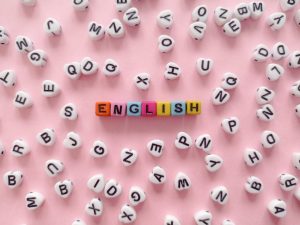Hello, fellow IB students! As a seasoned IB writer, I’m here to share some golden nuggets on ace your Language A: Language and Literature Internal Assessment (IA). Having crossed these borders, I understand the challenges and excitement of this assignment. So, let’s get started on making your IA a successful one!
IA Requirements: Grasping the Basics of IA
First, it’s crucial to grasp what the IA expects from you. According to general IB criteria, this assignment involves deeply analyzing literary works. Remember, it’s not just about reading a book; it’s about dissecting and discussing its themes, style, and context. Your goal is to showcase your understanding in a clear, concise manner.
Moving on to research — the backbone of your IA. Here, quality trumps quantity. Focus on credible sources and take meticulous notes. Analysis is where you connect the dots. As I know from my work, analyzing involves not just stating facts but interpreting them in the context of your argument. To avoid common IA writing mistakes, read our blog.
Language A: Language and Literature IA Best Topics
Now, onto picking a topic. From my experience, a well-chosen topic is half the battle won. Aim for something that intrigues you; passion shines through in writing. However, keep it manageable and within the scope of the course. A great topic is like a good book; it keeps you engaged and curious. Below, we provide you with some ideas you can consider. We also recommend you check out Literature IA topic ideas.
Higher Level Topics and Research Questions
In the IB Language A: Language and Literature course, the IA for Higher Level (HL) and Standard Level (SL) have distinct differences in complexity and depth. HL IAs generally require a more comprehensive analysis, with students expected to engage critically with texts and demonstrate a sophisticated understanding of literary concepts:
- Impact of Social Media on Language Evolution. How has social media linguistically influenced modern English?
- Dystopian Novels Reflecting Societal Anxieties. In what ways do contemporary dystopian novels mirror current societal fears?
- Post-Colonial Literature’s Influence on Identity. How do post-colonial texts shape national identity perceptions in former colonies?
- Shakespeare’s Language and Power Dynamics. Analyze the use of language in depicting power in a specific Shakespeare play.
- Satire in Modern Political Literature. How is satire used to critique politics in 21st-century literature?
- Modernist Poetry’s Break with Tradition. What defines the linguistic break from traditional forms in modernist poetry?
- Language and Gender in 20th-Century Novels. How do 20th-century novels depict gender roles through language?
- Evolution of Tragic Themes in Literature. How have tragic themes evolved from Greek to contemporary literature?
- Narrative Techniques in Magical Realism. Analyze the narrative techniques used in a renowned magical realist novel.
- Comparative Study of Non-Western Literature. Compare the themes and styles of two non-Western literary works.
- Feminist Themes in Contemporary Literature. How have feminist themes evolved in literature over the past 50 years?
- Cross-Cultural Influences in Modern Novels. How do modern novels incorporate and represent multiple cultures?
- Eco-Criticism in 21st-Century Literature. How is environmental concern depicted in recent literary works?
- Censorship and Literature. How has censorship influenced the development of literature in a specific region?
- Narrative Techniques in Autobiographical Writing. What narrative techniques are prominent in autobiographical works of the 20th century?
- The Interplay of Text and Image in Graphic Novels. How do graphic novels combine text and images to convey complex themes?
- The Representation of War in Modern Poetry. How is the experience of war depicted in contemporary poetry?
- Language as a Tool for Social Change. How have specific texts used language to advocate for social change?
- Narrative Structure in Nonlinear Novels. How do nonlinear narrative structures affect the reader’s understanding of contemporary novels?
- The Influence of Classical Literature on Modern Writers: How has classical literature influenced modern writers?
- Exploring Existentialism in 20th Century Theatre. How do plays from the 20th century explore existential themes?
- The Role of Irony in Satirical News. Analyze how irony is used in satirical news programs to critique society.
- Stream of Consciousness in Modernist Literature. How does stream-of-consciousness narrative affect reader perception in modernist literature?
- Language as a Reflection of Cultural Change in Novels. How do novels reflect cultural changes through language?
- The Influence of Historical Events on Literary Themes. How have major historical events shaped the themes in literature?
- Symbolism in 20th-Century Literature. What role does symbolism play in the works of 20th-century authors?
- Narrative Devices in True Crime Literature. How do true crime authors use narrative devices to engage readers?
- Language and Identity in Diaspora Literature. How is the theme of identity addressed in diaspora literature?
- The Evolution of Comic Books as Literature. How have comic books evolved as a literary form over time?
- Language and Power in Historical Speeches. Analyze the use of language in a famous historical speech.
These topics encourage analytical and critical thinking, which suits the depth and breadth required at HL in the IB Language A: Language and Literature course.
For a detailed breakdown of what you might expect to pay for your IA, read our comprehensive guide on the cost of writing an IB Internal Assessment.

Learn how to approach your IB English IO with strategies that ensure clarity, organization, and success in this essential IB assessment task.
Standard Level Topics and Research Questions
The SL IA, while still demanding, typically involves a less intricate analysis, with expectations tailored to a more foundational level of literary understanding:
- Language in Advertising. How does language in advertising influence consumer behavior?
- Cultural Reflections in Folklore. How does folklore reflect the culture of its origin?
- The Bildungsroman Genre. What are the common elements in coming-of-age narratives?
- Language of Propaganda in Historical Contexts. How was the language used in propaganda during a specific historical event?
- Comparative Study of Poetic Forms. Compare two different poetic forms and their linguistic styles.
- Influence of Technology on Communication. How has technology changed everyday communication?
- Satire in Television Shows. How do contemporary TV shows use satire to address social issues?
- Role of Language in Creating Atmosphere in Novels. How does language create an atmosphere in a chosen novel?
- Comparing News Media Language Across Cultures. How does news media language differ in two different cultures?
- Language and Identity in Young Adult Literature. How is identity portrayed through language in young adult novels?
- Language in Children’s Literature. How is language used to convey messages in children’s books?
- The Evolution of News Reporting Styles. How has news reporting language evolved over the past century?
- Language and Humor in Sitcoms. How is language used to create humor in popular sitcoms?
- Rhetorical Devices in Political Speeches. What rhetorical devices are commonly used in modern political speeches?
- Language and Identity in Short Stories. How do short stories use language to investigate identity?
- Language in Children’s Television Programming. How is the language used to educate and entertain children in TV shows?
- Comparative Study of Newspaper Editorials. How do different newspapers use language to present opinions?
- Language and Cultural Identity in Poetry. How do poets use language to express their cultural identity?
- Satire in Online Media. How is satire used in online platforms to comment on current events?
- Language and Emotion in Song Lyrics. How do song lyrics use language to evoke emotions?
- Language in Award-Winning Ad Campaigns. How is language effectively used in award-winning advertising campaigns?
- Comparative Analysis of Biographies. How do different biographies portray the same person through language?
- Language and Emotion in Popular Music. How is language used to express emotions in popular music?
- Metaphors in Political Rhetoric. How are metaphors used in contemporary political rhetoric?
- Language in Documentary Films. How do documentary films use language to convey their message?
- Language in Reality Television. How is language used to create drama in reality TV shows?
- Comparing Language in Online Blogs. How do different bloggers use language to engage their audience?
- Language and Culture in Travel Writing. How do travel writers use language to describe different cultures?
- Language in Social Media Influencer Communication. How do influencers use language to connect with their audience?
- Language and Persuasion in Product Reviews. How is language used to persuade in online product reviews?
The Standard Level IA generally has a narrower scope than the Higher Level (HL) IA. It is focused on applying concepts and skills learned in the course.
Writing Tips and Tricks: Enhancing Your IA Writing Skills
It is time to move forward after choosing the right topic and researching. In terms of writing, clarity is critical. Use a formal yet engaging tone. Avoid long, convoluted sentences; simplicity often speaks volumes. Also, pay attention to your grammar and syntax. A well-written IA is like a polished gem; it stands out for its clarity and brilliance.
Structuring your essay is like building a house; you need a solid foundation and a clear plan. Start with an introduction that sets the stage, followed by body paragraphs that flesh out your argument, and conclude with a summary that ties everything together. A well-structured essay flows seamlessly, guiding the reader through your insights.
Once your draft is ready, editing becomes your best friend. Here’s a tip: take a break before you start revising. Approaching your work with fresh eyes can make a world of difference. Seek feedback from teachers or peers; they can offer invaluable perspectives.
Buy IB IA with Full Confidentiality!
Grab your IB IA with full privacy guaranteed.
Our no-leak policy keeps your details 100% secure.

The Bottom Line
As we complete our overview of Language A: Language and Literature IA ideas, it’s essential to acknowledge that the process extends beyond just picking a subject. Developing an insightful, well-argued paper and meeting the assessment criteria can be challenging. But don’t feel overwhelmed. With appropriate guidance, commitment, and enthusiasm for the subject, you can produce an IA that meets the requirements and becomes a source of pride.
With my extensive background in assisting numerous IB students, I’m familiar with the various challenges and obstacles you might encounter. If you ever find yourself uncertain at any stage — whether in choosing a topic, developing a research question, analyzing a text, or simply confirming that you’re heading in the right direction — remember that it’s okay to seek professional assistance. Feel free to contact IB IA Writing Service for support whenever needed.

Nick Radlinsky
Nick Radlinsky is a passionate educator, marketer, and management expert with over 15 years of experience in the education sector. After graduating from business school in 2016, Nick embarked on a journey to earn his PhD, fueled by his dedication to making education better for students everywhere. His extensive experience, beginning in 2008, has made him a trusted authority in the field.
Nick's groundbreaking article, published in Routledge's "Entrepreneurship in Central and Eastern Europe: Development through Internationalization," showcases his keen insights and commitment to improving the educational landscape. Guided by his motto, "Make education better," Nick's mission is to simplify students' lives and promote efficiency in learning. His innovative ideas and leadership have helped transform countless educational experiences, setting him apart as a true pioneer in his field.




